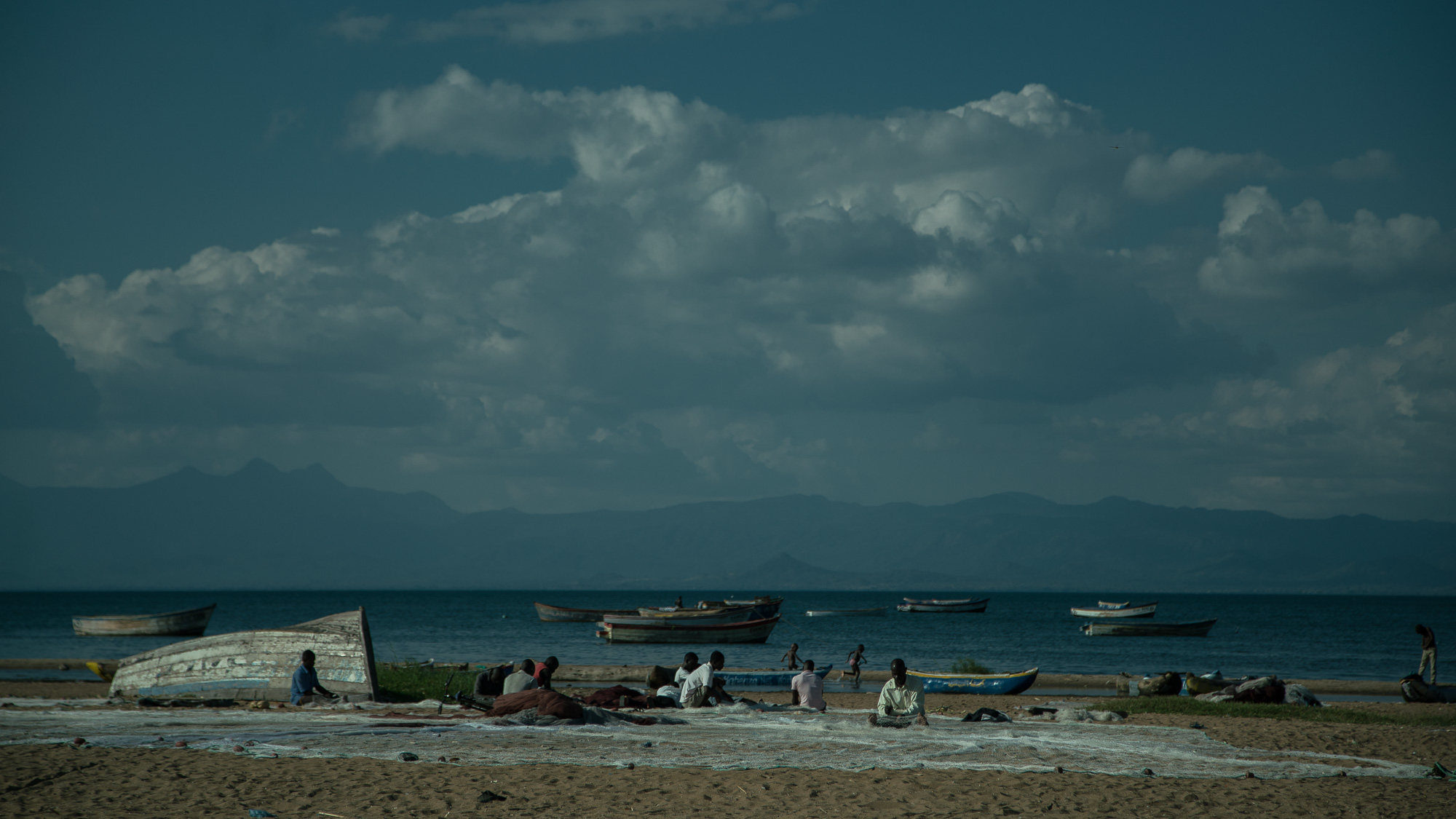Malawi has one of the highest rates of HIV/AIDS infections in the world. But it’s on the shores of Lake Malawi, in the Mangochi district, where the rates are at their highest.
“HIV is high here because when fishermen have a lot of money, they will spend it drinking and womanizing,” explains Phillip, a local fisherman. He adds that before people were informed about HIV, they were careless and slept with women without using protection.
“But now that they have seen a lot of people losing their lives, they have come to know the dangers of sleeping with a woman without protection,” he says.
Phillip is HIV positive and has become a peer mentor to fellow fisherman in Mangochi as part of USAID’s HIV intervention in the country.
“I go meet fishermen to discuss HIV/AIDS,” he says. “We start by asking them if they know anything about HIV/AIDS. If they do, we ask them if they have had their blood tested.”
As it’s difficult to reach high-risk populations like fishermen because they don’t have time to go to clinics due to their fishing schedules, a group of organizations working in the area decided to work together to bring healthcare services to them.
“We work hand in hand with PACT,” Phillipe explains, adding that on seeing how far away hospitals are in Mangochi, PACT along with several other partners, including CISER, Baylor and One Community, decided to set up ‘Beach Wellness Days.’
“People think this is a good thing because here hospitals are very far from where we are,” says Phillip. “So, when the hospital is close and it’s free, this would make people attend.”
At these Beach Wellness Days, people from the district are screened and tested, and given referral slips if HIV positive. Officers from the nearest health facilities are there to provide drugs to patients who test positive, so they can start treatment immediately.
Fishermen who test positive are also connected to their local health facility, where they can continue to receive treatment and anti-retroviral medicine. They are also provided with follow-up support and counseling.
Early diagnosis is important with HIV because it allows people to start treatment with AIDS drugs sooner—increasing their chances of living a long and healthy life.
Together, with the Malawian government and PEPFAR (President's Emergency Plan for AIDS Relief), USAID is working towards nearing “endemic control” of HIV—something never before accomplished with a disease that has no vaccine or cure.
Background: Malawi’s HIV prevalence is one of the highest in the world, with 9.2 percent of the adult population (aged 15-49) living with HIV, according to a 2016 UNAIDS report.
Over the last decade, massive efforts to reduce the HIV epidemic have been made. In 2016, 70 percent of people living with HIV in Malawi were aware of their status, of which 89% were on treatment.
The government, along with support from the Presidents Emergency Plan for AIDS Relief (PEPFAR), has laid out a five-year strategic plan to meet the ambitious 90-90-90 Treatment Targets released by UNAIDS in 2014, preparing to control the HIV epidemic by 2020. Under the plan, Malawi will have diagnosed 90 percent of all people living with HIV, started and retained 90 percent of those diagnosed on antiretroviral therapy (ART), and achieved viral suppression for 90 percent of patients on ART.
Mangochi district, along the shores of Lake Malawi, has one of the highest HIV prevalence rates of 10.1 percent. It also has a high concentration of fishermen, which are known to have a high HIV prevalence in Malawi of 11.5 percent.
The area, amongst others, is being targeted in terms of raising HIV/AIDS awareness and prevention. One of the biggest challenges is connecting with hard-to-reach populations like the fishermen, who have irregular timetables, a propensity for relations with sex workers (who have a HIV prevalence of 62.7 percent) and live far from testing clinics.
Brief: To produce a 3-5-minute film focused on the implementation of the HIV Test and Start service delivery and enhancement of HIV service platform in the high-risk fishing communities of the Mangochi district.
The film’s purpose is to showcase integrated efforts and highlight the results and successes of that integration.
These efforts come in the form of ‘Beach Wellness Days’, where the community, with the support of the Beach Village Committee (BVC), can access activities and health information, including HIV testing and services, that are provided by PEPFAR, USAID, PACT, Community Initiative for Self-Reliance (CISER), Baylor and One Community. These coordinated interventions are aimed at reducing the number of new infections and link HIV positive patients to treatment.
Challenges & Result: There are a lot of moving parts, mainly how to include all the relevant implementors, in the 3-5-minute film we produced.
We were provided with brief bios or profiles on potential subjects by PACT. And then met with the program/project managers from CISER, PACT, One Community and Baylor, some of the implementing partners.
The challenge was to coherently connect all partners and explain their involvement in HIV/AIDS prevention and mobilization of HIV testing and counselling at the Beach Wellness Days.
We had to depart from the brief and our usual style of telling a story of a development program through the eyes of a beneficiary, as although we interviewed two subjects on camera—Phillip, a peer mentor, and his nephew Lyton, who tested HIV positive and is receiving treatment thanks to the Beach Wellness Days—we realized these alone couldn’t articulate the various services and carry the film.
In the end, we chose to use a narrator, Nandi Bwanali who was one of the implementors, to give context and tie everything together with footage of the fishermen, beach wellness days and the other services each partner implements.
Client: USAID
Partner: PACT, CISER, Baylor, One Community
Location: Mangochi, Malawi
Narrator: Nandi Bwanali
Videography: Morgana Wingard
/ Jaco Bester
Photography: Morgana Wingard
/ Jaco Bester
Editing: Morgana Wingard
/ Sarah Grile
Project Manager: Lisa Stewart
Audio Mixing: Morné Marais












